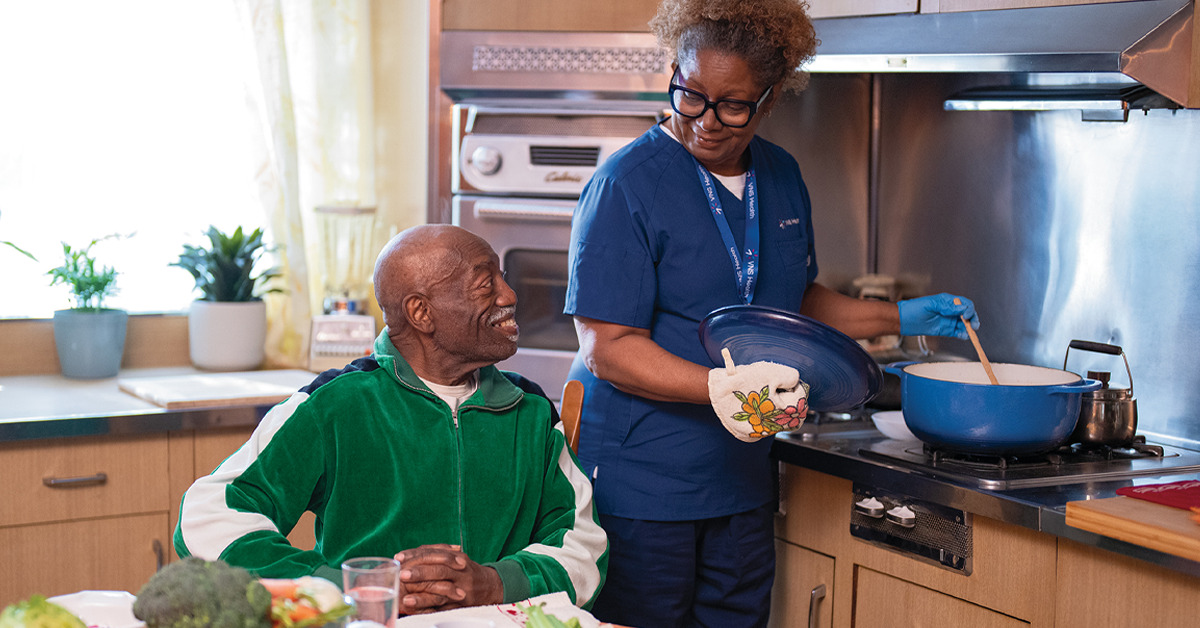Nutrition for Older Adults
These nutrients are especially important for adults over age 65. If your diet falls short, here are tips to help ensure you get enough.

Good nutrition is important for everyone, but eating a healthy, balanced diet often becomes more difficult with age. Older people may feel less hungry. They may need to avoid certain foods. They may have less money to spend on healthy food or have trouble getting to the store. More than half of adults over age 65 who are admitted to the hospital do not eat enough nutritious food. Over time, poor nutrition can make chronic diseases worse. It can also increase the risk of infection and slow down healing.
These nutrients are especially important for older adults, with tips to ensure they are getting enough:
Vitamin B12 may help protect against dementia, heart disease, and balance problems. Older adults may have trouble absorbing it from food.
- Solution—Eat more fish, lean meat, chicken, eggs, and dairy products. Consider a B12 supplement.
Calcium is important for healthy bones, muscles, and nerves. People tend to eat less calcium as they age.
- Solution—Three servings of low-fat milk or dairy products per day. Kale, broccoli, canned salmon (discard the skin, but mash in the bones), and calcium-fortified juices are other good sources. Homemade smoothies might tempt small appetites.
Vitamin D helps the body process calcium and maintain bone density. Our bodies make vitamin D when skin is exposed to sunlight. If you don’t or can’t go outside every day, your body might not produce enough.
- Solution—Three servings of vitamin D-fortified foods, such as milk or cereal, daily. The vitamin also occurs naturally in salmon, tuna, and eggs.
Potassium helps to lower blood pressure. Many older adults don’t get the recommended amount.
- Solution—Fruits and vegetables at every meal. Avocados, oranges, dried beans (especially black beans), prunes, plums, and potatoes with skins are all very high in potassium.
Fiber helps to avoid constipation. It can also help lower heart disease risk and prevent type 2 diabetes. Most Americans get only about half the recommended amount of fiber.
- Solution—Eat lots of whole grains, nuts, beans, fruits, and vegetables.
Water is essential to good health. As we age, our sense of thirst decreases. Some medications increase dehydration risk.
- Solution—Drink five to eight glasses a day, even if you don’t feel thirsty.


